- Home
- Jason Pinter
Faking Life Page 12
Faking Life Read online
Page 12
“Brian,” came his surly response. Esther leaned forward.
“Huh?”
“My name's Brian. You don't have to say 'excuse me'. You know how many drinks you'll get yelling 'excuse me' at a bartender in a packed house?” Making sure her eyes weren't deceiving her, Esther surveyed the bar. She counted a total of six people, only four of them at the counter.
“Sorry, excuse me Brian,” she said.
“Yes?”
“Can I have a whiskey sour, or is that too much trouble?” He disdainfully made the drink and clapped it down in front of her, then went back to feeling his stomach. She took a sip and glanced toward the bathrooms. She noticed Brian tapping the wood in front of her.
“Yes?”
“What, you think you drink for free around here?” She shook her head in disbelief, wondering how an owner could hire a bartender as likable as John and another who treated customers with disgust usually reserved for telemarketers. “That'll be five.” She put the bills on the table, then dug a quarter from her purse and left it on top. A suitable tip.
“Excuse me, Brian. Can I ask you a question?” He looked up, continued the manual ironing job, and raised his eyebrows. “Is John Gillis on tonight?”
“Nope, he's off this week.”
“Off? The whole week?”
“Yeah, the whole week. Artie, he's the owner, he asked me to fill in since John jetted last night without telling him. He told John to stay home, sleep it off and come back in a week if he still wanted to work here.”
“So he's suspended from bartending?”
“I suppose that's one way of looking at it.”
“I thought that kind of stuff only happened to athletes and cops.” Brian looked up at her and smiled.
“Lady, you can get suspended from anything if you fuck up bad enough.”
Chapter Eleven
Paul felt like sprinting down Seventh Avenue, but decided to give his aching legs a rest. Still sweating from the jog and carrying a light load in his briefcase, for the first time in ages Paul Shrader felt on top of the world. He had no papers to grade, no tests to score, plus he'd sparked an idea for a short story he could, if finished on time, submit to his agent.
His agent.
A word that had once seemed so implausible that it had lost all meaning, yet now rang in his ears like sonorous church bells.
I have an agent.
When he first started writing nine years ago, Paul Shrader had no idea that writers even had agents. Agents represented movie stars. They helped Tom Cruise and Julia Roberts sort through thousands of scripts to decide which would be their next blockbuster. They didn't work for the people who wrote about worlds that movie stars might inhabit. The ones whose images existed on paper, hoping the telepathy they'd developed with the reader was strong enough to create a universe more intoxicating than anything they could see on the silver screen.
He hadn't been expecting it, especially after years of sending queries that were rejected with scrawny notes, sometimes handwritten though usually not, explaining that his material just wasn't right. He knew he wrote good stuff—his publication credits told him that—but selling short stories wasn't something you could make a living on in the crowded market of testosterone-drenched blockbusters.
The agent who had contacted him was from the recently established Slocumb Smith Literary Management. She sounded young on the phone, a hint of uncertainty in her tinny voice. Her name was Carol Joyce and she wasn't even listed in his copy of Writers Market. Researching further, Paul learned she was married to the editor of a literary magazine that had published one of his stories. Apparently they kept his contact info on file. She had good credentials—B.A. from Princeton, MFA from Syracuse—and impressed Paul with her eagerness.
Trade magazines were fantastic, but merely a steppingstone to fame. They were the minor leagues, a medium to polish your skills until you were ready for a call-up to the big leagues. But how much seasoning did he need? In the beginning Paul figured he'd publish a few shorts to gain credibility, then when he was ready to put something substantial together he'd be established to the point where his name might mean something. But if he really wanted to attract attention, not to mention raise the odds of a big payday, he needed one of two things: a novel, or enough good short stories to warrant publishing a collection.
The day after her initial call, he Fed-Exed Carol ten stories and his curriculum vitae. He received a call back a week later saying, and a contract was in the mail the next day. Due to the tremendous success of another compilation by a writer named Preston Keith—one of the stories had recently been optioned by Brad Pitt—new collections were highly sought after. Every house, Carol said, was looking for the next Preston Keith.
He took his time reading the contract, sipping a glass of scotch while he scrutinized the details. Standard agreements; 15% of earnings, termination clause, 20% of foreign sales. It sounded great. He had no problem giving up 15% of his earnings on a book contract. Hell, he'd be making 85% more than what he was earning now. And royalties! To think he could be earning royalties, like he was Quincy Jones or something. He'd already begun coordinating a wardrobe for his tour.
He trudged up the steps, his muscles aching, and lurched inside the apartment. Silence met his ears. John's door was closed. An empty beer bottle sat on the coffee table but the house was otherwise spotless. Since the suspension, Paul had expected John to either go insane with boredom and spend hundreds of dollars on movie rentals and junk food, or simply morph into a couch potato (although this probably incorporated much of the first scenario as well). Instead, Paul came home every night to a closed door and the faint sound of typing emanating through the walls like Morse code in a P.O.W. camp.
Since their schedules hadn't overlapped in years, it was entirely possible John's writing had gone unnoticed for a spell. Despite his curiosity, Paul hadn't asked about it. He knew firsthand that a writer needed privacy to thrive. If John wanted his opinion, he'd ask for it. But shit, how could he not be curious?
As far as Paul knew, John had never written anything not assigned by a professor, and his taste in literature was an enigma. Paul would spend hours browsing the racks for books by unknown (and in his opinion, unappreciated) authors who might profit from the sale of one more copy, knowing it could be him one day needing that extra dollar.
Still, he had to give John credit. It took a lot to sit down and really write. Paul wasn't an author who, due to some prenatal cognition, knew he was born to write. To him, it was all hard work and practice. He didn't even read much until college, when he would plop down on his bed with a novel every now and then just to escape the drudgery of 1,000 page textbooks about sea snails and tectonic plate shifts.
Yet as he read more, an amazing thing happened. Not only did Paul find himself enraptured by the fabulous tales, he began to realize that he, Paul Shrader, was actually capable of writing stories as well.
The more he wrote, the more Paul's grades dropped. He neglected his schoolbooks for novels, ditching his assigned readings and buying paperbacks by the truckload at the campus bookstore. As far as he was concerned, they were a better investment. A six-dollar five hundred page novel would last a whole week, whereas the thinnest textbooks would set him back thirty or forty and rarely be opened.
He remembered when his first story was accepted by the college literary zine, sitting in the student lounge with a fifth of vodka tucked under his fleece, the after party where he met—and left with—a grad student named Michelle who stole the ounce of weed he kept in the closet. As he slept that night, Paul dreamed of people waiting in long lines, just for a glimpse of him, their idol. Nubile young women waiting in hot anticipation, passing him lipstick-smeared phone numbers and coded hotel room keys. But when it came time to write a follow-up story, his mind was blank.
He stayed up all hours of the night wracking his brain without a single word emerging. Finally, two months after the story's publication, Paul was in the shower singing �
�Stand by Your Man” (the girl he was dating had butchered it the previous night at a karaoke bar), when a series of visions swam by. He stepped out of the shower, still sopping wet, and proceeded to churn out 15 pages. Three months later the story was on page 47 of the zine and Paul was twelve dollars richer. It was in that moment, sitting naked at his desk, when Paul Shrader knew he could write. His first story wasn't an aberration or merely the product of underutilized imagination. Finally he'd learned to corral his muse.
Maybe that's what happened to John, Paul thought as he removed his sweat-soaked shirt. Maybe his mind was finally freeing itself. Seeing so many joys and sorrows night after night must have made him think about his life, the experiences he was or wasn't having. Bars must be great places for material, he thought. So many stories every night. So many lives wandering in and out.
Paul flexed his aching muscles and ran a hot shower. He let the steam rise, the sweat melting off his body, a thousand worries dripping down the drain. When he got out, John was sitting on the couch reading Time Out New York.
“Hey,” he said, marking his place with his finger. “How was school?”
“Got yelled at by a nine-year old. Would've yelled back but his father's a cop. Not much homework tonight so maybe I'll treat myself to Leno. What are your plans?”
John held up the magazine. “I'm thinking about taking in some culture, you know, actually take advantage of this city. You have no idea how much shit I haven't seen. Pretty embarrassing considering I've lived here for twenty-eight years. But under every museum they list the good bars in the neighborhood. I think it's an omen.”
“Yeah, sure. An omen.” Paul took a seat on the couch. “So, you getting bored?”
“Sort of, not really I guess. I just spend so much time doing…other things that I just need to get out of the house before I get bed sores.”
Paul leaned over and noticed a huge mess of books and papers piling up on the bed and floor inside John's room. He could barely see the blue carpeting.
“Looks like you've been busy,” he said, nodding towards the piles. John looked as though he had no idea what Paul was talking about.
“Oh yeah, that. Just passing time.” Paul guessed close to thirty books lay scattered around the room. Dozens of pieces of paper were crumpled into balls and strewn haphazardly. Smudged print was visible on many of them.
He watched John twiddle his thumbs, like a child trying to change the subject after misbehaving.
John said, “So what's with you? You look like you're glowing or something.” Clearly trying to divert attention away from his room. Normally Paul would press the issue, but he'd looked forward to announcing his triumph.
“Well, I went to the gym today,” he said.
“And?”
“And what? I worked out, wanted to get the blood pumping. I ran two miles, and I haven't done that in years.”
“What brought this on?” John said, grinning. “I've been telling you for years your spare tire is about to blow a flat, but you usually ignore me.” Paul leaned back in the sofa, ready to drop the bombshell, letting the feeling soak in.
After a delicious moment of silence, he said, “I got an agent today.”
John said nothing. To Paul's surprise, he couldn't sense any reaction whatsoever. Not that he was expecting a hug or a champagne bath, but John's expression was strangely indifferent. Almost forcibly so.
“So what's the connection between getting an agent and working out?” John asked. “I mean, isn't writing like the only media outlet where it doesn't matter how you look? I mean there are some ugly ass authors out there.”
“True,” Paul said. “But the successful ones are all reasonably good-looking guys. Fit, you know? I mean even Stephen King is attractive in a creepy 'ooh, wouldn't want to meet him in a dark alley' kind of way.” John made a sound like hmm and stayed quiet for a few moments. When he spoke it was with less conviction.
“I'm happy for you Paul, I mean congrats. You've wanted that for a while, haven't you? I mean you're gonna get a book published, that's great.” Paul laughed nervously and ran his fingers through his hair.
“Don't pass the cigars out yet. I don't know if she'll be able to sell the thing.” He knocked on the wall for good luck.
“So what happens now?”
“Now I wait,” Paul said. “I have no idea how long it takes. Could be a few months. But I've been patient so far, I can stand to wait a little longer.” John was chewing his fingernails, a habit he only relapsed into when he was anxious. Half the time the guy went on dates it was with cuticles chewed to the quick and nearly bleeding.
Paul knotted his hands together.
“So John…is everything ok?” John smiled and nodded. Paul recognized that look. The kind someone gives trying to falsely exude satisfaction.
“I'm fine,” he said. “It's just been a tough time, with the bar and all. I've just…I've been there so long that I don't know what's what anymore. Like when you've been cooped up inside for so long that you forget there's an outside.” John stopped, scratched the back of his neck, chewed another mutilated nail. “Just tough times. Everyone gets 'em. Don't worry about me.”
Paul was beyond curious. John had never been a secretive person. He was the kind of guy whose emotions leaked through his skin like a thick layer of sweat.
What are you hiding? Paul wanted to ask. Paul knew he was being kept in the dark for a reason. It was easy to see: the subtle flicker at the corner of John's mouth, the reluctance to look him in the eye, the constant fidgeting. It might be amusing to someone who cared less, but to Paul, he merely knew John was lying.
“I don't understand,” Paul said. “What's tough? You're not having trouble making rent, are you? Haven't you saved enough so that…”
“It's not the rent. I can't really explain it, but just give me time, alright? I know I've been acting little off kilter lately, but there's a reason. I just can't talk about it right now.” Paul nodded skeptically. John stood up. “By the way, I'm going away tomorrow, just for the day. Let's do pizza tomorrow night, on me.” Paul nodded, concerned.
“So where you going?”
John replied, “New Haven.”
“What's in New Haven?”
“Someone I've needed to see for a long time.” He stretched. “I'm gonna hit the hay. Got a long day tomorrow.” John got up and closed the door, leaving Paul confused and alone on the couch.
Chapter Twelve
John's alarm went off at 6:45 am, first a soft, pleasant hum, then escalating into a blaring honk. He swatted the clock until the noise stopped, and wiped the crust from his eyes. A cold shower later and his body still felt like a wet noodle. He decided to leave the apartment before his muscles staged a mutiny.
Squinting through the early morning sunlight, John stood outside the brownstone, watching hordes of suits pass him by. Neatly-coiffed businessmen buying coffee and running to catch the train, folded newspapers under their arms and brown paper bags clutched in gloved hands, all scampering into the bowels of New York to start their morning commute.
John took a breath and let this new world soak in. Millions of people were already settling into desk chairs, comfortable routines. Any other day and John would be asleep for another five hours.
A small pang of sadness hit John's stomach, and for the first time he knew the world had been passing him by.
People were never in a hurry at noon. They were the homemakers, the unemployed, the people who worked the graveyard shift. Nowhere to go and nowhere to be. He observed the energetic hustle and bustle of the early morning like a light had turned on after years of sleep. He'd never realized how much was there, just waiting to be glimpsed.
He paid $1.25 for a coffee light and sweet and took the 6 train to Grand Central, hanging onto a metal loop for dear life to avoid being crushed in the tsunami of arms and briefcases. At 42nd street the doors opened, people spilling onto the platform like a car of circus midgets.
He shelled out twenty-two bucks
for a round-trip ticket to New Haven and boarded at track number five, a steel lunchbox departing in sixteen minutes.
John had no idea how to get to his destination once the train arrived, no clue what public transportation was like in New Haven. He'd have to play it by ear and hope there was a subway or bus stop nearby. In case of a transportation emergency he'd hit the ATM on his way home from Slappy's last night, but was hoping to do the day on fifty dollars max.
Glancing around the car, John eyed an advertisement on the adjacent wall. Some new reality television series, the ad pictured a homely young man on a beach surrounded by five gorgeous women holding hundred dollar bills and busting out of pastel bikinis. They looked hungry, determined. The guy was shrugging as if to say, “Look at this pickle I'm in!” John snorted a laugh and felt the train lurch forward. Now there was officially no turning back.
Like a delayed reaction to a previous realization, John felt his stomach begin to churn as the train rumbled along. The impetus for this trip had formed the night he was suspended from Slappy's, yet once he'd decided to go he'd never felt truly nervous about it. It was the reason he'd left the bar, left Esther in silence and Artie steaming. He'd sprinted home, ignoring the throbbing pain in his knee from tripping over the asshole in the Yankees hat, turned on his laptop, and wrote nonstop about the images that had burst in his head like heated kernels. Memories long forgotten. Brought on by the…
Wine.
The wine had done it. When John woke up the next morning, salty bile in his mouth, he'd shaken the cobwebs from his head when a surge of anxiety coiled around him like a snake. He knew then what he needed to do. He sucked in a breath and felt his heart beat against his ribs.
Though this trip had been planned for nearly a week, he was questioning himself for the first time. What exactly was he expecting? Catharsis? Vengeance? He just knew he needed an answer. He'd forgotten the question for fifteen years. Now he couldn't go on if he didn't know.

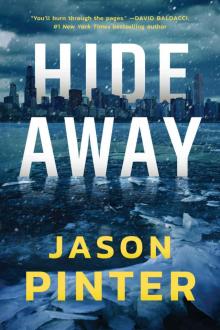 Hide Away (A Rachel Marin Thriller)
Hide Away (A Rachel Marin Thriller)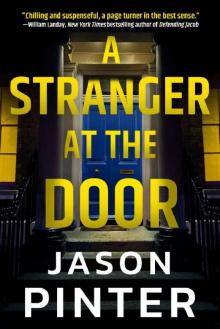 A Stranger at the Door (A Rachel Marin Thriller)
A Stranger at the Door (A Rachel Marin Thriller)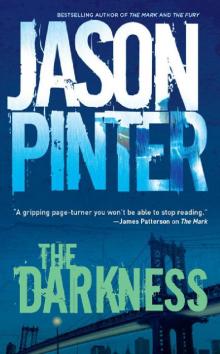 The Darkness hp-5
The Darkness hp-5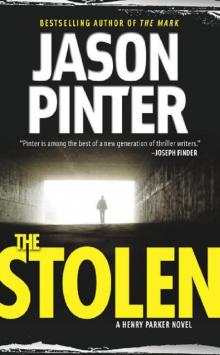 The Stolen hp-3
The Stolen hp-3 The Guilty hp-2
The Guilty hp-2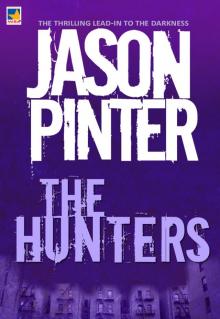 The Hunters
The Hunters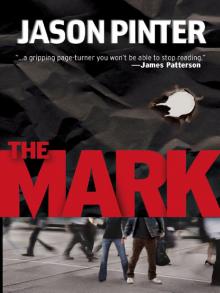 The Mark hp-1
The Mark hp-1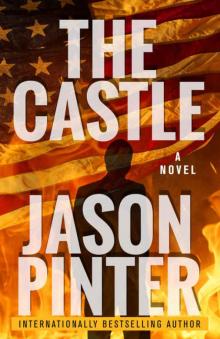 The Castle: A Ripped-From-The-Headlines Thriller
The Castle: A Ripped-From-The-Headlines Thriller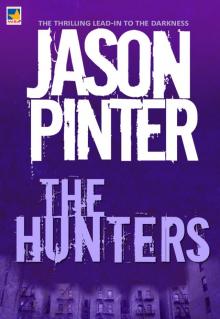 The Hunters (henry parker)
The Hunters (henry parker)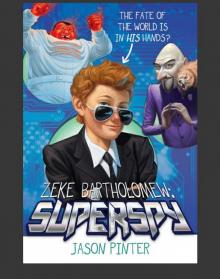 Zeke Bartholomew
Zeke Bartholomew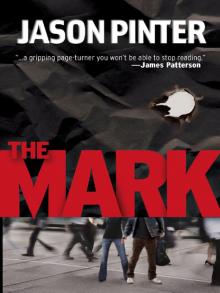 The Mark
The Mark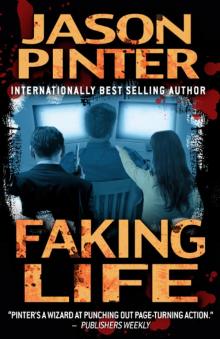 Faking Life
Faking Life![[Henry Parker 01.0] The Mark Read online](http://i1.bookreadfree.com/i2/04/08/henry_parker_01_0_the_mark_preview.jpg) [Henry Parker 01.0] The Mark
[Henry Parker 01.0] The Mark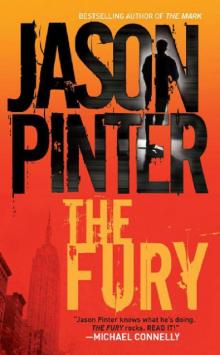 The Fury hp-4
The Fury hp-4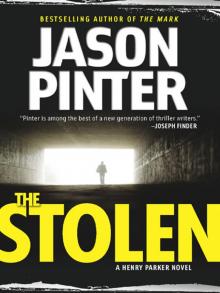 The Stolen
The Stolen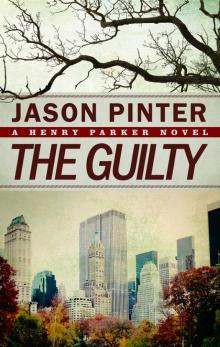 The Guilty
The Guilty